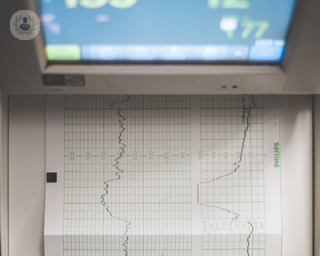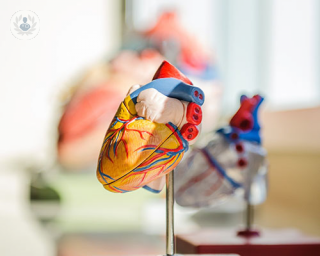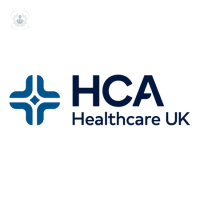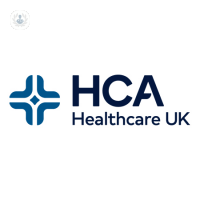What is it?
An intracardiac electrogram is an exam that tests the heart’s electrical system function, in order to see whether there is any arrhythmia.

What does it involve?
This test is considered an invasive one and is carried out under local anaesthetic.
During the procedure, the doctor will insert electric cables into the chest, which will start sending periodical electric stimuli to the heart. These stimuli will cause small, induced arrhythmias and the leads will record the effects of the arrhythmias. After the procedure, you will be kept under clinical observation and your heart’s activity will be monitored through an ECG.
What is it for?
An intracardiac electrogram evaluates the functioning of the heart’s electrical system. However, it may also be used to investigate the origins of tachycardia or any other cardiac disorders, such as syncope (or temporary loss of consciousness), collapse (fainting) and palpitations (perceived heartbeat irregularity).
How can you prepare for it?
You may be advised by your cardiologist not to eat anything before the procedure and you might need to stay in hospital overnight afterwards. After that, you will be able to go back to your normal routine.
What does it feel like during the procedure?
Since the test is carried out under local anaesthetic, the only discomfort you may feel may be due to the induced electric stimuli.
It is very rare for complications to arise after this exam, however in 1% of the cases these complications are of vascular and cardiac nature. In case of vascular complications, the valves the leads pass through may be damaged. This may cause conditions such as venous thrombosis, haematoma and arteriovenous fistulae.
Cardiac complications may include haemorrhagic pericardial effusion (which can be easily treated with a chest drain) or malignant ventricular arrhythmia (which can be treated with electric cardioversion).
This is why a hospital stay after the procedure is important – the medical team can monitor you closely and treat any complications that occur.
What would a “bad” result mean?
An abnormal result may mean that you have a heart rhythm disorder. There are many types of heart rhythm disorder, but most can be treated in a number of ways – including medication, radiofrequency ablation, or the fitting of an artificial pacemaker.
10-21-2015 12-14-2024Electrophysiology study
Dr Syed Afzal Sohaib - Cardiology
Created on: 10-21-2015
Updated on: 12-14-2024
Edited by: Aoife Maguire
What is it?
An intracardiac electrogram is an exam that tests the heart’s electrical system function, in order to see whether there is any arrhythmia.

What does it involve?
This test is considered an invasive one and is carried out under local anaesthetic.
During the procedure, the doctor will insert electric cables into the chest, which will start sending periodical electric stimuli to the heart. These stimuli will cause small, induced arrhythmias and the leads will record the effects of the arrhythmias. After the procedure, you will be kept under clinical observation and your heart’s activity will be monitored through an ECG.
What is it for?
An intracardiac electrogram evaluates the functioning of the heart’s electrical system. However, it may also be used to investigate the origins of tachycardia or any other cardiac disorders, such as syncope (or temporary loss of consciousness), collapse (fainting) and palpitations (perceived heartbeat irregularity).
How can you prepare for it?
You may be advised by your cardiologist not to eat anything before the procedure and you might need to stay in hospital overnight afterwards. After that, you will be able to go back to your normal routine.
What does it feel like during the procedure?
Since the test is carried out under local anaesthetic, the only discomfort you may feel may be due to the induced electric stimuli.
It is very rare for complications to arise after this exam, however in 1% of the cases these complications are of vascular and cardiac nature. In case of vascular complications, the valves the leads pass through may be damaged. This may cause conditions such as venous thrombosis, haematoma and arteriovenous fistulae.
Cardiac complications may include haemorrhagic pericardial effusion (which can be easily treated with a chest drain) or malignant ventricular arrhythmia (which can be treated with electric cardioversion).
This is why a hospital stay after the procedure is important – the medical team can monitor you closely and treat any complications that occur.
What would a “bad” result mean?
An abnormal result may mean that you have a heart rhythm disorder. There are many types of heart rhythm disorder, but most can be treated in a number of ways – including medication, radiofrequency ablation, or the fitting of an artificial pacemaker.


Electrophysiology explained
By Dr Anita Arya
2025-02-04
Revered consultant cardiologist and electrophysiologist Dr Anita Arya explains all you need to know about electrophysiology and the role of this field in treating some types of heart conditions. See more


How an electrophysiology (EP) study works in 2020
By Professor Sabine Ernst
2025-01-31
The electrophysiology (EP) study can help diagnose a wide range of heart problems and plan the treatment you need. Over recent years, the pool of patients who can safely benefit from an EP test has widened, and with the help of new scanning technology, the EP test involves fewer risks than ever before. We interviewed pioneering cardiologist Professor Sabine Ernst to find out what an EP test looks like in 2020. See more
Experts in Electrophysiology study
-
Dr Fakhar Khan
CardiologyExpert in:
- Atrial Fibrillation
- Electrophysiology study
- Dilated cardiomyopathy
- Electrocardiogram
- Pacemaker
- Arrhythmia
-
Dr Magdi Saba
CardiologyExpert in:
- Arrhythmia
- Atrial Fibrillation
- Heart failure
- Ventricular tachycardia
- Cardiac (catheter) ablation
- Electrophysiology study
-
Dr Ashish Dhawan
CardiologyExpert in:
- Arrhythmia
- Electrophysiology study
- Palpitations
- Pacemaker
- Heart failure
- Chest pain
-
Professor Pier Lambiase
CardiologyExpert in:
- Arrhythmia
- Atrial Fibrillation
- Brugada syndrome
- Cardiomyopathy
- Electrophysiology study
- Implantable cardioverter defibrillator (ICD)
-
Professor Aldo Rinaldi
CardiologyExpert in:
- Electrophysiology study
- Atrial Fibrillation
- Heart failure
- Pacemaker
- Arrhythmia
- Implantable cardioverter defibrillator (ICD)
- See all

Cleveland Clinic London Hospital
Cleveland Clinic London Hospital
33 Grosvenor Place, SW1X 7HY
No existe teléfono en el centro.
By using the telephone number provided by TOP DOCTORS, you automatically agree to let us use your phone number for statistical and commercial purposes. For further information, read our Privacy Policy
Top Doctors

78 Harley Street
78 Harley Street
78 Harley St, London, W1G 7HJ
No existe teléfono en el centro.
By using the telephone number provided by TOP DOCTORS, you automatically agree to let us use your phone number for statistical and commercial purposes. For further information, read our Privacy Policy
Top Doctors

London Bridge Hospital - part of HCA Healthcare
London Bridge Hospital - part of HCA Healthcare
27 Tooley St
No existe teléfono en el centro.
By using the telephone number provided by TOP DOCTORS, you automatically agree to let us use your phone number for statistical and commercial purposes. For further information, read our Privacy Policy
Top Doctors
-
Cleveland Clinic London Hospital
33 Grosvenor Place, SW1X 7HY, Central LondonExpert in:
- Cardiology
- Colorectal surgery
- Minimal access surgery (keyhole surgery)
- Gallbladder surgery
- Diagnostic Imaging
- Ultrasound
-
78 Harley Street
78 Harley St, London, W1G 7HJ, Central LondonExpert in:
- Cancer
- Head and neck cancer
- Cardiology
- Intensive care
- Diagnostic Imaging
- Women’s health
-
London Bridge Hospital - part of HCA Healthcare
27 Tooley St, Central LondonExpert in:
- 24-hour service
- Cardiology
- Minimal access surgery (keyhole surgery)
- Orthopaedic surgery
- Cardiovascular disease
- Gastroenterology
- See all
- Most viewed diseases, medical tests, and treatments
- Cardiovascular disease
- Cardiac screening
- Narcolepsy
- Polysomnography (sleep study)
- Ulnar nerve entrapment
- Peripheral neuropathy
- Genetic testing
- Heart murmur in children
- Tremor
- Seizures








